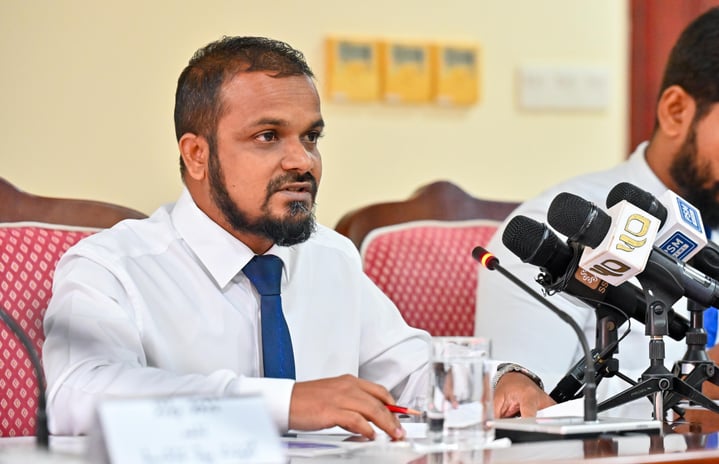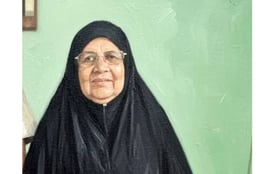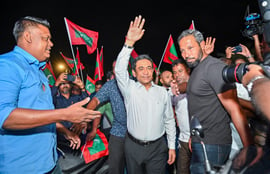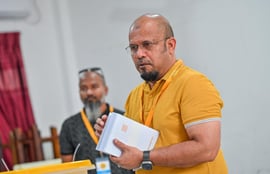Maldives Media Council (MMC) has expressed worry today that the purpose of the Maldives Media and Broadcasting Regulation Bill is to control independent media and that the bill states nothing that can protect journalists.
The bill submitted by Thulhaadhoo MP Abdul Hannan AbuBakuru has seen pushback and concern from journalists, Maldives Broadcasting Commission (BroadCom), Maldives Journalists Association (MJA) and various international organizations but has since been passed by Parliament.
The bill was accepted to parliament in an extraordinary sitting held on August 27 while parliament is officially in recess and has been forwarded to the Independent Institutions Committee for review. MMC has appeared before the committee today.
MMC President Hussain Sageef said while speaking at the committee that the bill was made without any sort of consultation or feedback from relevant parties, with it being a concerning issue. He went on to say that the bill does not offer any resolutions to the current disruptions and worries councils face and that nothing of the sort was made clear when the bill was drafted.
Sageef went on to say that the bill was drafted in such a way that the right to express oneself and the right of journalism is being lost, with journalism organizations being written out as well. He also said that the bill was designed in such a way that media rights and broadcasting-related characteristics were being mixed together.
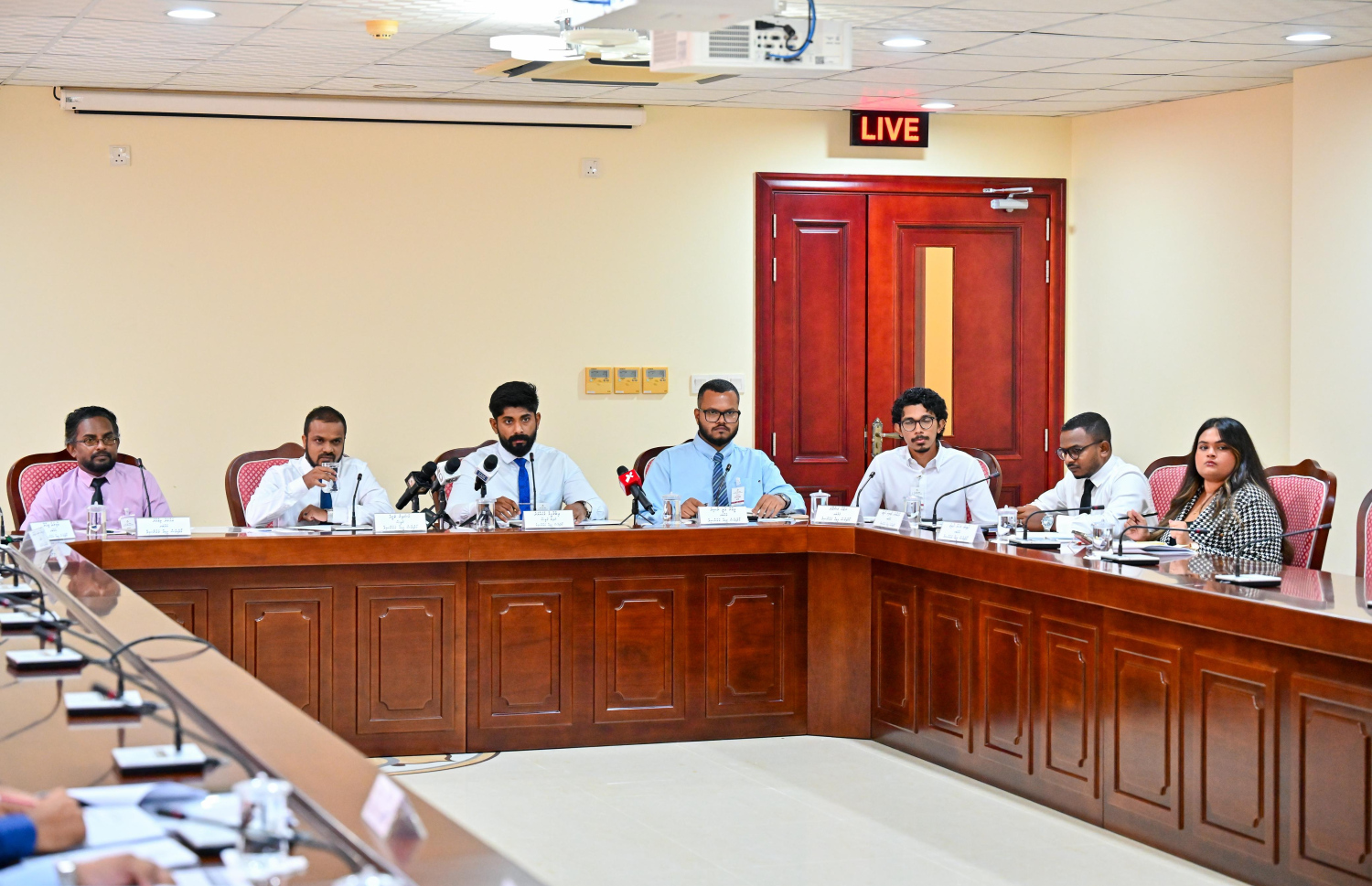
As per Sageef, MMC requests that a new bill be produced to the Attorney General's office, with discussions being held with all relevant parties during the bill drafting procedure. Sageef also requests that the current bill be sent back to the Parliament Floor. He also stated that the current bill cannot be amended as is and that even more concerns will spring forth due to the bill.
"We request that the bill be ejected for now, and for discussions to be held with nationwide research to be conducted," said Sageef.
Sageef said that MMC is doing a lot of work in spite of a lack of budget and resources. Of the cases investigated by the MMC last year, 20 cases were decided against newspapers and nine cases were decided against them, he said. An advisory had also been released stating that two newspapers had been spreading misinformation, along with the request to block a website that utilizes crude language in their copies.
If a new media regulation system is to be founded while MMC is conducting the aforementioned work, then it should be done with wide-spread discussion, said Sageef. He has also called for assistance from UN-based parties established in the country regarding the matter.
Council member Nahudha Faiz stated that they find it hard to believe that there is a reason the bill is to be expedited at this rate and that there is a lot of concern surrounding the bill. She went on to say that solutions need to be found regarding the concerns and that discussions need to be held.
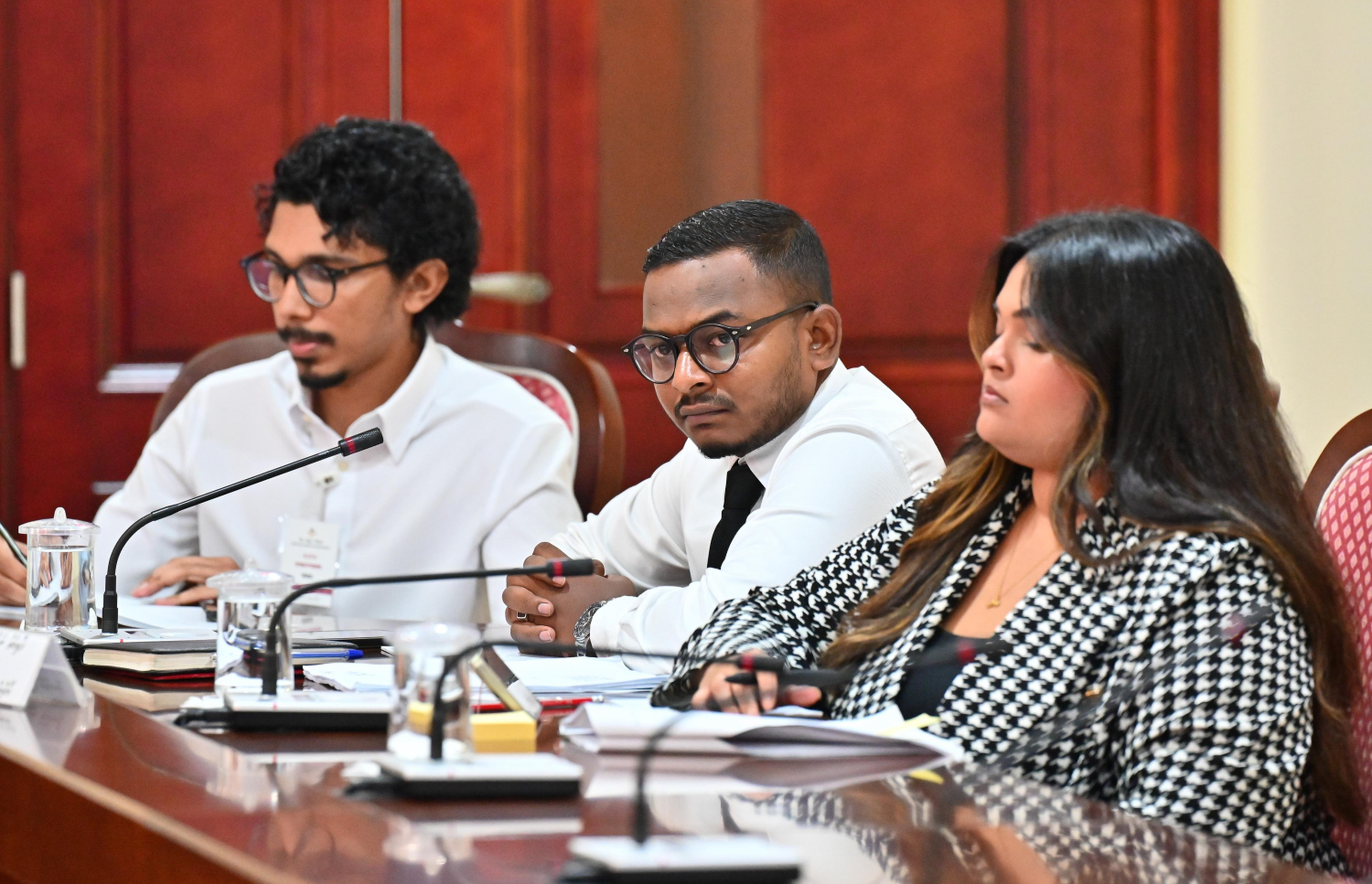
As per Nahudha, there are articles that penalize journalists but no articles that help protect them, an observation that further fuels concern.
Council member Najah Masood stated that while freedom of press is a right that is very broadly guaranteed by the Constitution, the bill has been crafted in such a way that journalists have to answer to political parties. The penalties mentioned in the bill against journalists, who are to keep the state accountable for their actions, are not in line with the salaries they receive, Najah said.
He went on to say that as there are no measures described in the bill that offers any protection for journalists, the bill only serves to shackle the media. He also said he does not believe that a systemic change that would shift the entire sector because of some personal experiences of politicians was an appropriate reason for the bill.
Najah stated that the bill is a danger to the media and that Reporters Without Borders (RSF) has also called for the rejection of the bill, also stating that if the bill is passed as is, Maldives will fall even further in the Press Freedom Index.
The bill states that journalists who breach ethical standards set by the commission stand to face significant fines, and revocation of the media outlets registry. Individual journalists can face fines of between MVR 5,000 to MVR 25,000, while the outlets can be fined up to MVR 100,000. In addition to blocking newspaper websites, action will be taken against publicized news one year before the bill was passed.
The inclusion of the three members who will be appointed by the President, is an action that will not only hinder the "best practices" systems that are observed worldwide in journalism, but will also undermine the self regulatory system, with the government's influence making its way into the media.
Parliament will have the power to remove members voted and appointed by the media. Due to this, the Parliament and government can influence members elected by the media.
Including upholding elected governments amongst the code of ethics for journalism. Due to an article such as this being included, it will be a difficult task for journalists to hold the government accountable and responsible.
While a case is being reviewed by the commission, the power to temporarily seize licenses will be given to the council, along with the closure of news outlets for an undisclosed amount of time: The power to revoke the license will be given to the court.
The commission will have the power to enter newsrooms through police intervention should they see a situation as a threat to national security. National security can be defined very loosely.
As action can be taken against individual journalists, the disclosure of information to journalists and responsibility to the work will be hindered, keeping journalists in a state of constant fear. The current system does not allow action to be taken against individual journalists.
It is not known who determines the "truth" or the "falsity" of a claim, while it also states journalists must apologize if they publish false information.
